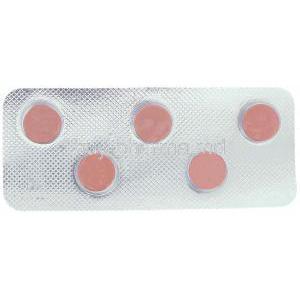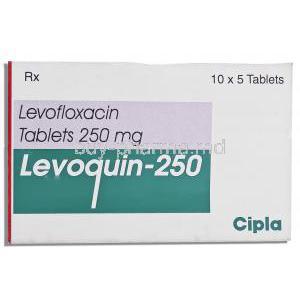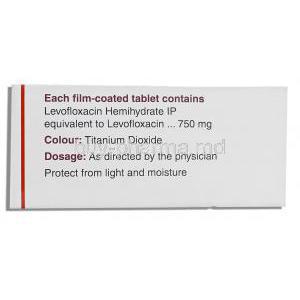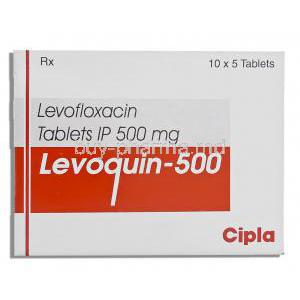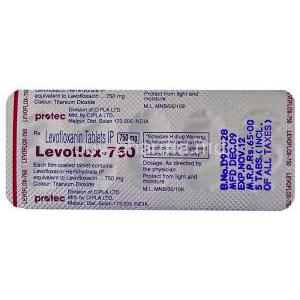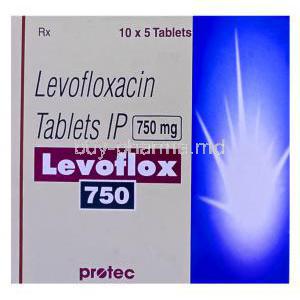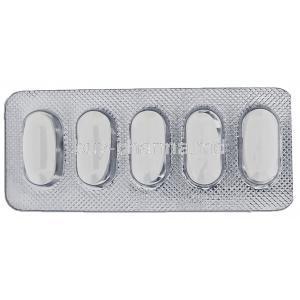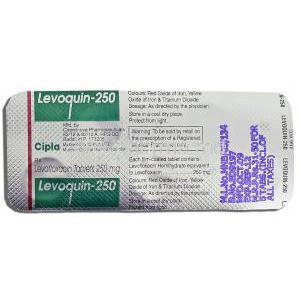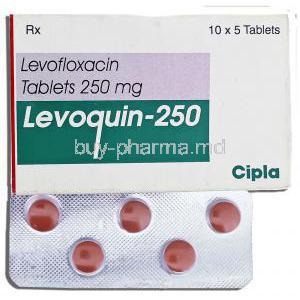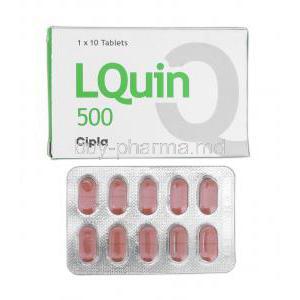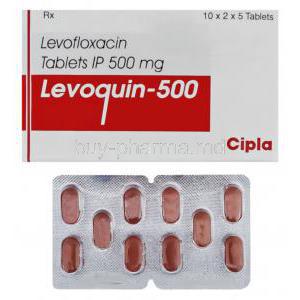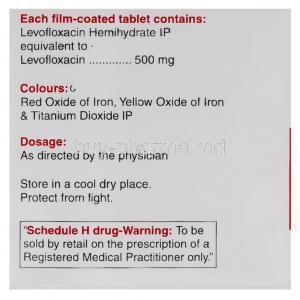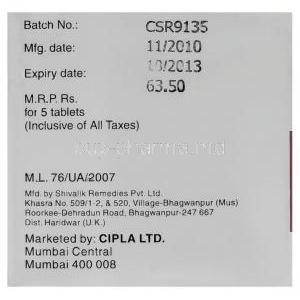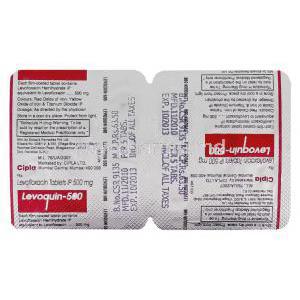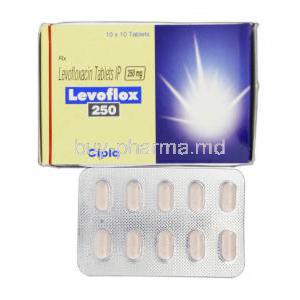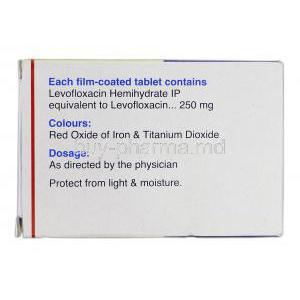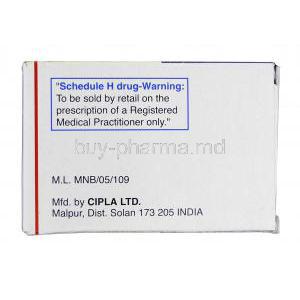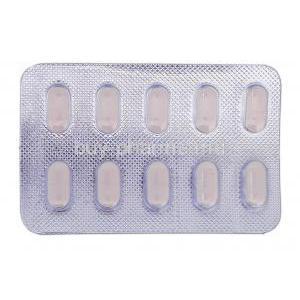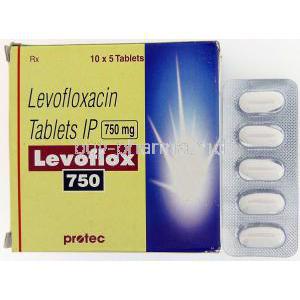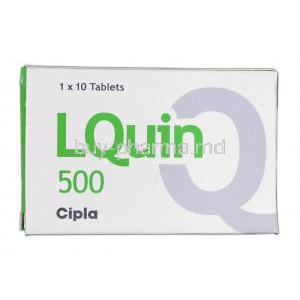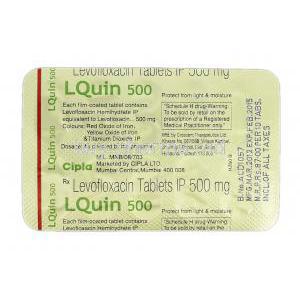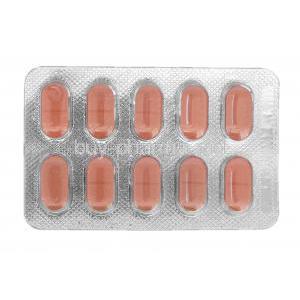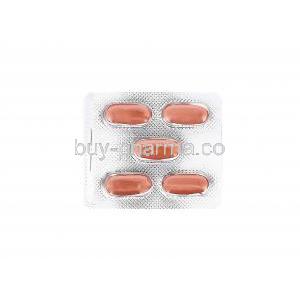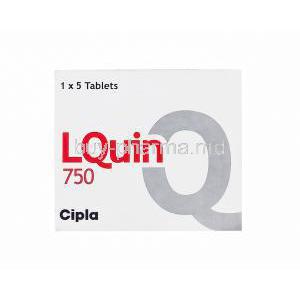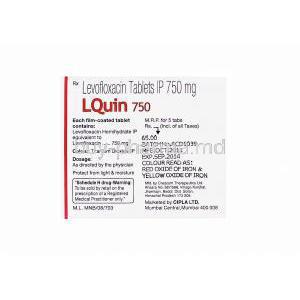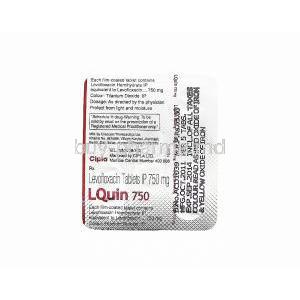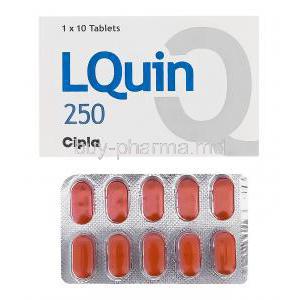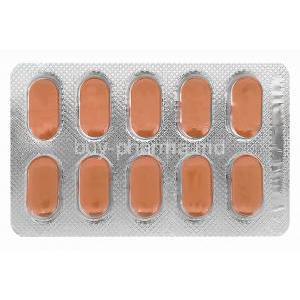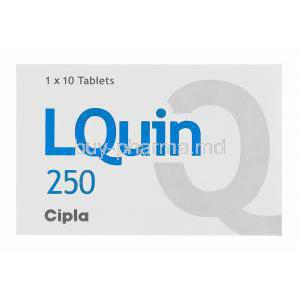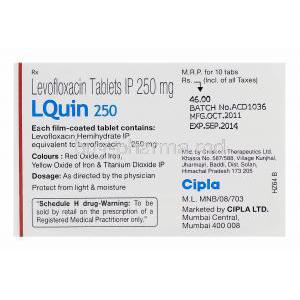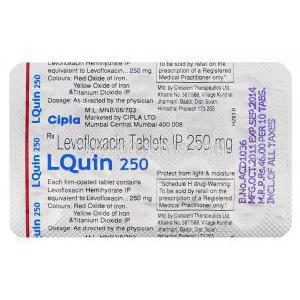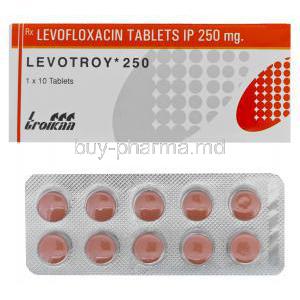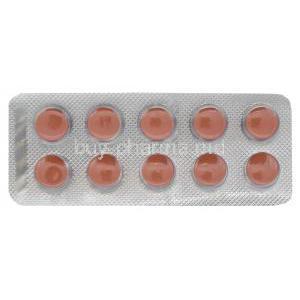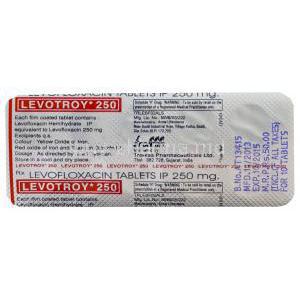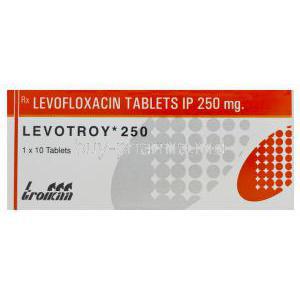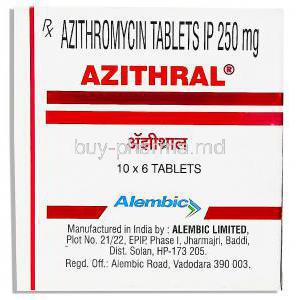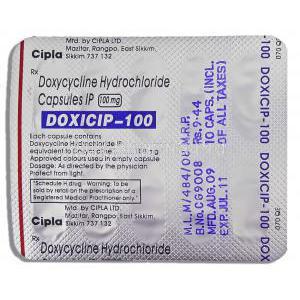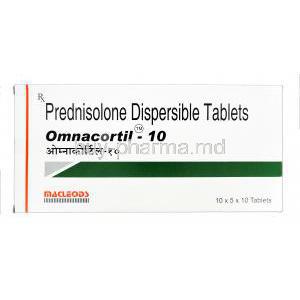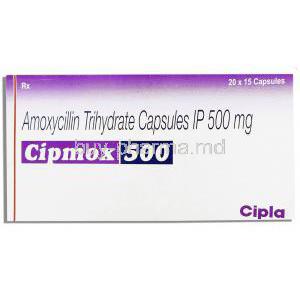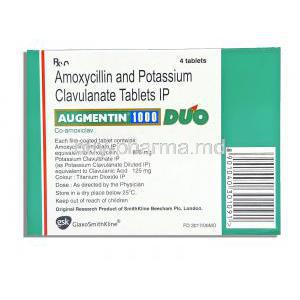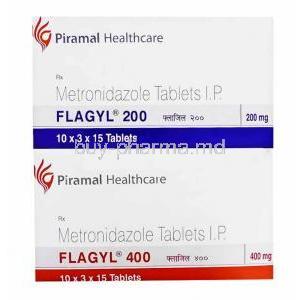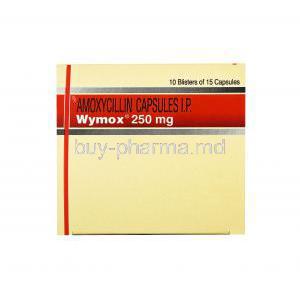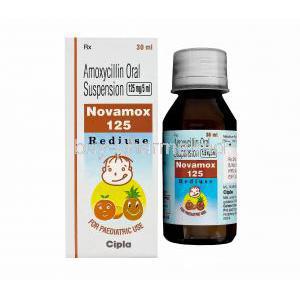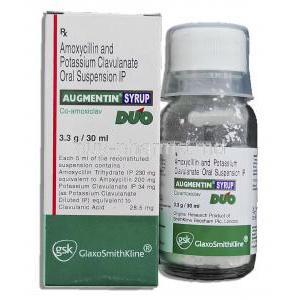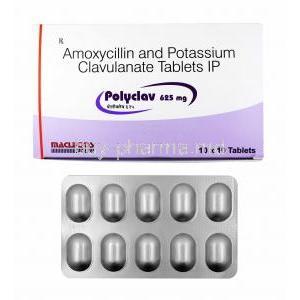Levofloxacin
- I. Introduction to Levofloxacin
- II. Composition and Formulation of Levofloxacin
- III. Therapeutic Uses of Levofloxacin
- IV. Off-label Applications of Levofloxacin
- V. Dosage and Administration of Levofloxacin
- VI. Special Considerations in Administration
- VII. Potential Interactions with Levofloxacin
- VIII. Common and Severe Side Effects of Levofloxacin
- IX. Warnings, Contraindications, and Precautions
- X. Handling Overdose and Ensuring Careful Administration
- XI. Storage and Handling Instructions for Levofloxacin
- XII. Closing Thoughts: The Integral Role of Levofloxacin in Modern Medicine
I. Introduction to Levofloxacin
A. Brief Overview of Levofloxacin
Levofloxacin, a member of the fluoroquinolone group. It is a powerful antibiotic widely used to treat various bacterial infections. Its primary function hinders bacterial DNA's replication, transcription, and repair processes. The growth of bacteria is disrupted, and their ability to cause harm is diminished.
B. Development and Medical Use
In 1996 Levofloxacin received authorization for medical usage in the United States with time. Its scope has expanded to include an array of bacterial infections like respiratory tract infections, urinary tract infections, and bacterial prostatitis.
C. Mechanism of Action: Understanding How Levofloxacin Works
The effectiveness of Levofloxacin stems from how it works. This antibiotic blocks two crucial enzymes, DNA gyrase and Topo IV, in replicating bacterial DNA. Doing so disrupts the ability of bacteria to reproduce and repair their DNA, ultimately causing their demise and eventually resolving the infection1.
II. Composition and Formulation of Levofloxacin
A. Understanding the Active Ingredients
Levofloxacin is the active ingredient in this medication. It is a part of the fluoroquinolone class of antibiotics. Alongside levofloxacin, it includes inactive components such as
- Microcrystalline cellulose
- Magnesium stearate
These inactive components play a crucial role in maintaining the stability of the drug.

B. Different Pharmaceutical Forms and Their Uses
Various options exist for levofloxacin administration: tablets that can be ingested
- Orally
- Injectable solutions
- Eye drops
The specific formulation chosen frequently depends on the type and location of the infection being addressed. To elucidate this point further with an instance: while systemic infections are typically managed through oral intake in tablet form, treatment for bacterial eye infections usually necessitates direct application using specialized eye drops.
III. Therapeutic Uses of Levofloxacin
A. Treatment of Bacterial Infections: The Primary Purpose
Levofloxacin is primarily used to treat severe bacterial infections2, which include but are not limited to conditions such as
- Pneumonia
- Chronic bronchitis
- Skin infections
- Chronic prostate infections
- Urinary tract infections
- Inhalational anthrax
B. Other Approved Medical Applications
In addition to its primary applications. Levofloxacin has gained approval for treating acute bacterial sinusitis and acute bacterial exacerbation of chronic bronchitis. Furthermore, it may serve as a preventive measure for individuals exposed to the bacterium responsible for anthrax.
IV. Off-label Applications of Levofloxacin
A. Utilization in Unapproved but Effective Treatments
While Levofloxacin's primary function is to combat bacterial infections, it can also serve a purpose in alternative situations. Studies have revealed its efficacy in treating conditions like early Lyme disease and certain sexually transmitted diseases. Nevertheless, it is vital to note that a healthcare professional should always supervise any usage beyond its official indications.
B. Insights into Emerging Research and Potential Uses
Ongoing research is investigating other potential uses for Levofloxacin. This encompasses the treatment of multidrug-resistant tuberculosis and specific types of endocarditis. Although these findings show promise, conducting further comprehensive studies to establish these applications is crucial.
V. Dosage and Administration of Levofloxacin
A. General Dosage Guidelines for Adults
The recommended dose of Levofloxacin for adults is typically between 250mg and 750mg daily, depending on the specific infection and its severity. It is important to note that the final determination of dosage and treatment duration should always be made by a healthcare professional considering the patient's clinical condition.

B. Dosage Adjustments: Renal Impairment and Other Factors
Physicians must be mindful that patients suffering from impaired renal function may necessitate modifications to their Levofloxacin dosage. This measure is essential for averting the possibility of drug accumulation and subsequent toxicity. Furthermore, Doctors should consider additional factors like patient weight, age, and concomitant medications while prescribing this medication.
C. Emphasizing the Importance of Adhering to Prescribed Dosage
It is of utmost importance to strictly follow the prescribed dosage and treatment duration by faithfully completing the entire course of therapy. You guarantee the infection is eradicated and minimize the possibility of acquiring antibiotic-resistant bacteria. Choosing to discontinue treatment without seeking professional guidance poses a significant risk of relapse or further complications regarding the infection.
VI. Special Considerations in Administration
A. Administration to Elderly: Precautions and Adjustments
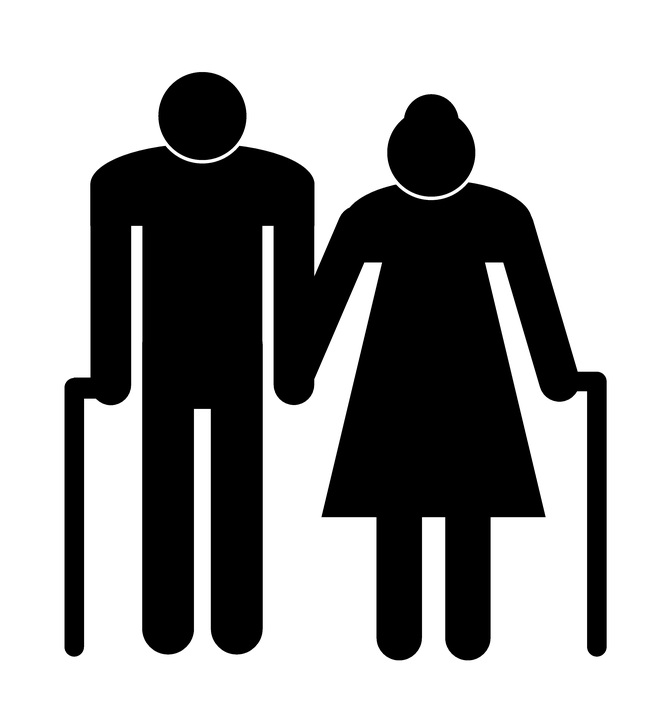
Levofloxacin may significantly impact elderly patients, making them more prone to experiencing side effects, particularly those related to tendon disorders. This risk increases when these individuals are also taking corticosteroids. Accordingly, it is crucial to closely monitor such patients and consider potential dosage adjustments to ensure their well-being.
B. Administering Levofloxacin to Pregnant Women and Nursing Mothers

The use of Levofloxacin during pregnancy warrants thoughtful deliberation as it carries potential risks for fetal health. Administering this drug should only occur when adequate justifications exist and when weighing its benefits against possible harm. Moreover. Since Levofloxacin is excreted in breast milk. A decision must be made regarding whether nursing should cease or if discontinuing the medication aligns with prioritizing maternal well-being.
C. Pediatric Use: Understanding the Risks and Benefits

Levofloxacin is typically not advised for children because it may increase the chances of musculoskeletal disorders, such as
- Arthritis
- Bone Pain
- Joint pain
Nevertheless, it might be considered for youngsters with inhalational anthrax or severe pneumonia under close medical supervision.
VII. Potential Interactions with Levofloxacin
A. Drug Interactions: Risks and Precautions
Levofloxacin, similar to other medications, can interact with various other drugs, which may impact its effectiveness or raise the likelihood of adverse effects. To illustrate. It can potentially interact with antacids, multivitamins, and other iron or zinc items. These particular substances have the potential to diminish Levofloxacins' absorption. Consequently reducing its efficacy. Hence it is advisable to administer Levofloxacin at least 2 hours before or after consuming these products.
B. Interactions with Food, Alcohol, and Dietary Supplements
It is important to note that Levofloxacin can be consumed with or without food. However, avoiding consuming dairy products like milk or yogurt is advisable. As well as calcium-fortified juice. As these can interfere with the absorption of the medication in the body.
Furthermore, it is essential to be cautious of consuming alcohol while on this treatment as it may heighten the chance of experiencing specific side effects such as dizziness and confusion. To ensure your safety and well-being. It is imperative to always seek advice from a healthcare professional before incorporating any new dietary supplements into your Levofloxacin regimen.
VIII. Common and Severe Side Effects of Levofloxacin
A. Identifying Common Side Effects and Management Strategies

Levofloxacin may commonly cause mild and temporary side effects1, such as
- Nausea
- Diarrhea
- Headache
- Dizziness
To effectively manage these symptoms, it is advisable to maintain adequate hydration. If the side effects continue or deteriorate, it is recommended to seek medical attention promptly.
B. Recognizing Severe Side Effects: Immediate Actions Required
Rare yet significant adverse effects may involve harm to tendons. Issues with nerves as well as mental health concerns. Should any indicators of
- Unusual pain or swelling in the joints
- Tingling
- Numbness sensations
- The emergence of new signs of mental distress manifest
It is recommended to cease the medication and promptly seek medical assistance.
IX. Warnings, Contraindications, and Precautions
A. Understanding the Contraindications for Levofloxacin
Individuals with a known sensitivity to Levofloxacin, quinolone antimicrobial agents, or any other ingredients in the product should not use Levofloxacin. It is also advisable for individuals with epilepsy or a previous history of tendon disorders associated with quinolone usage to refrain from using this medication.
B. Long-Term Usage: Potential Risks and Precautions
Using Levofloxacin for an extended period may result in diminished effectiveness or the developing of a secondary infection. Additionally, there is a heightened risk of tendon rupture or inflammation, particularly among older individuals. Due to these potential complications, it is crucial to adhere strictly to the prescribed administration guidelines provided by a healthcare professional and refrain from elongating the duration of treatment beyond what has been instructed.

C. Important Safety Measures for Ensuring Effective Treatment
It is essential always to follow the instructions provided by your healthcare provider when using Levofloxacin. Additionally, it is necessary to regularly monitor your response and condition to ensure safe and effective treatment. Furthermore, it is essential to complete the entire course of treatment. Even if your symptoms improve before the infection is completely cleared.
X. Handling Overdose and Ensuring Careful Administration
A. Recognizing and Managing Overdose Symptoms
Despite its rarity for individuals to experience an overdose of Levofloxacin. The ability to recognize potential indications holds great significance. Possible symptoms encompass tremors, seizures—alterations in mental state or mood swings, and severe dizzy spells. Should there be suspicion of an overdose occurrence arises, it becomes necessary for immediate medical intervention. It should also be noted that inducing vomiting should only occur under explicit instructions from a healthcare professional.
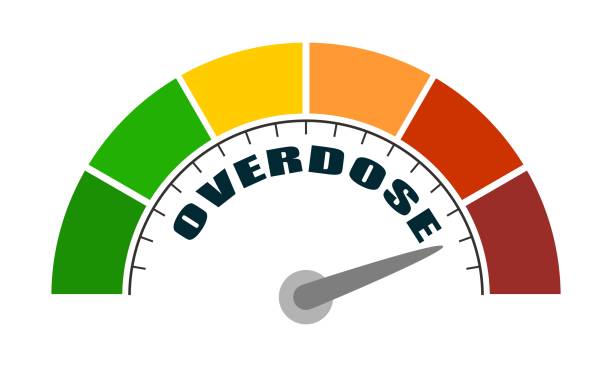
B. Steps to Ensure Accurate Dosage
It is of utmost importance to maintain accuracy in dosage administration to mitigate the possibility of overdosing and to guarantee desired therapeutic outcomes. It is imperative to adhere strictly to the dosage recommendations healthcare professionals provide. Levofloxacin, a commonly prescribed medication, is typically taken once or twice daily, with the exact dosage varying depending on the type and severity of the infection and individual health considerations.
C. Essential Actions in Case of Overdose
Should an overdose occur. It is of utmost importance to promptly obtain medical intervention as a matter of urgency. Please immediately contact your local poison control center or emergency room for timely assistance. Take into consideration that symptoms associated with an overdose might bear a resemblance to the drug's side effects; however. They usually manifest with heightened severity and thus demand specific management strategies.
XI. Storage and Handling Instructions for Levofloxacin
A. Proper Storage Conditions for Ensuring Medication Efficacy
It is advisable to store Levofloxacin at room temperature, keeping it away from light and moisture. It is important to avoid storing it in the bathroom as this may affect its potency. Remember to always keep all medications out of the reach of children and pets. Following these proper storage conditions can help ensure the medication's effectiveness while minimizing potential risks.

B. Safe Handling and Disposal Guidelines
Not storing any remaining medication for future use after your treatment is essential. To prevent accidental ingestion or misuse, properly dispose of any unnecessary medications for more detailed instructions on how to safely discard your medication. It is advised to consult with a pharmacist or local waste disposal company.
XII. Closing Thoughts: The Integral Role of Levofloxacin in Modern Medicine
A. Recapitulating Key Aspects and Considerations
Levofloxacin is a potent antibiotic that is effective against many bacterial infections. It is vital in modern medicine as it can treat common respiratory tract infections and even more severe conditions. However, to ensure its safe and effective use. It is essential to administer it carefully. Be aware of its potential side effects and interactions. And strictly follow the recommended dosage guidelines.
B. Reinforcing the Significance of Responsible Medication Use
It is imperative to use Levofloxacin responsibly, just like any other medication. To achieve this. Understanding the medication and adhering to the prescription guidelines is crucial. Additionally, maintaining open communication with healthcare providers is essential. By following these steps, effective treatment can be ensured, and potential risks can be minimized. This responsible approach maximizes the significant role that Levofloxacin plays in healthcare.


